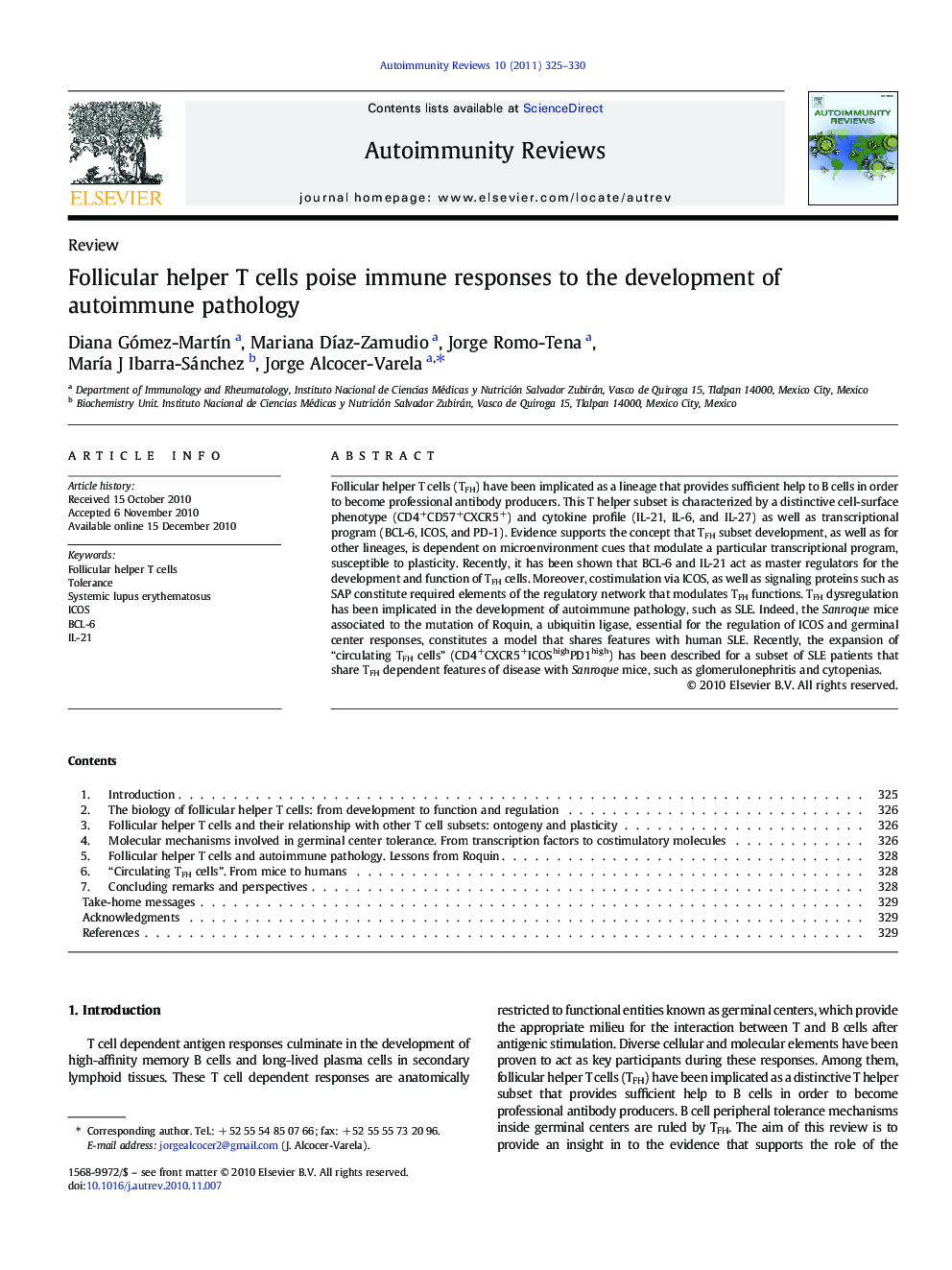| کد مقاله | کد نشریه | سال انتشار | مقاله انگلیسی | نسخه تمام متن |
|---|---|---|---|---|
| 3342007 | 1214258 | 2011 | 6 صفحه PDF | دانلود رایگان |

Follicular helper T cells (TFH) have been implicated as a lineage that provides sufficient help to B cells in order to become professional antibody producers. This T helper subset is characterized by a distinctive cell-surface phenotype (CD4+CD57+CXCR5+) and cytokine profile (IL-21, IL-6, and IL-27) as well as transcriptional program (BCL-6, ICOS, and PD-1). Evidence supports the concept that TFH subset development, as well as for other lineages, is dependent on microenvironment cues that modulate a particular transcriptional program, susceptible to plasticity. Recently, it has been shown that BCL-6 and IL-21 act as master regulators for the development and function of TFH cells. Moreover, costimulation via ICOS, as well as signaling proteins such as SAP constitute required elements of the regulatory network that modulates TFH functions. TFH dysregulation has been implicated in the development of autoimmune pathology, such as SLE. Indeed, the Sanroque mice associated to the mutation of Roquin, a ubiquitin ligase, essential for the regulation of ICOS and germinal center responses, constitutes a model that shares features with human SLE. Recently, the expansion of “circulating TFH cells” (CD4+CXCR5+ICOShighPD1high) has been described for a subset of SLE patients that share TFH dependent features of disease with Sanroque mice, such as glomerulonephritis and cytopenias.
Journal: Autoimmunity Reviews - Volume 10, Issue 6, April 2011, Pages 325–330